Christian Cameron’s historical acumen and narrative flair combine to give the reader a glimpse of what the life of a 14th Century knight – in moments of chivalry and occasional calumny – might have been like. Cameron makes opening the book truly feel like stepping through time and mingling in the ranks of those who sought to find improbable nobility even in the darkest moments of battle.
What I'm Reading
What I'm Reading
Reading The Hallmarked Man
I’m a big fan of the Strike television show (I mean, Tom Burke and Holliday Grainger? I’d watch them reading out the phone book – all the while wondering if they’ll ever kiss). The books make for fun beach reading, full of intricate investigations interspersed with the never-ending “will they/won’t they” of Strike and Robin. At over 250K words, it’s a doorstopper . . .
Reading The Ill-Made Knight
I never cease to be jealous of Christian Cameron’s[tag Christian Cameron] talent for blending authenticity with compulsive readability. The Ill-Made Knight is both an ode to the chivalric tradition and a poignant exploration of its flaws. William Gold is both heroic in his aspirations yet all too honest about his own failings. I heartily recommend this first book in what I’ve no doubt is a magnificent series.
The Phoenix Crown
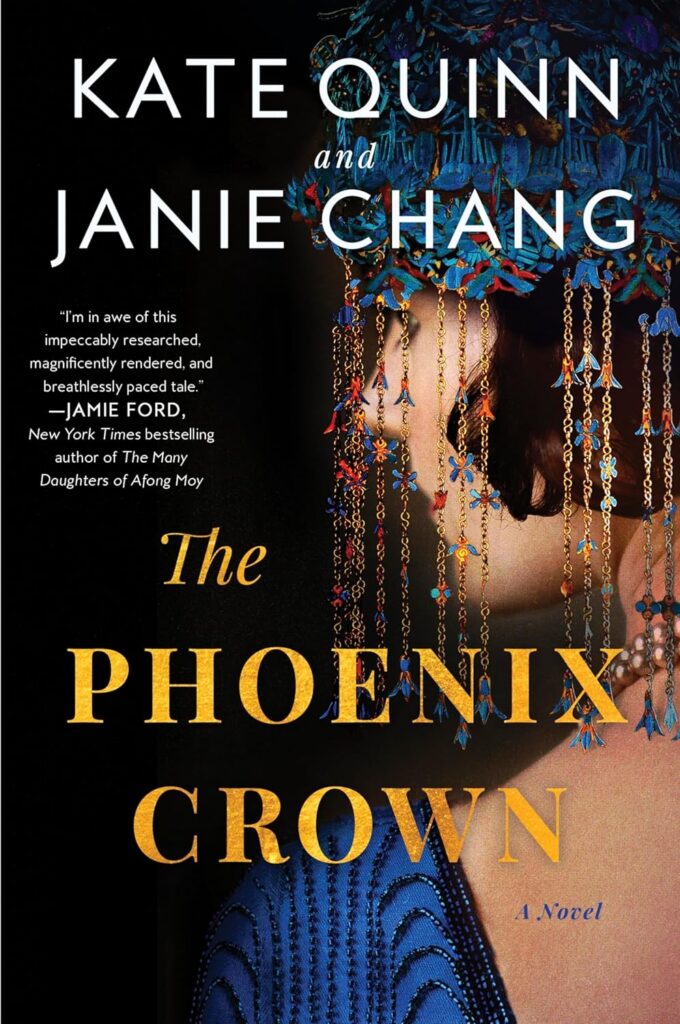
Despite the title, the Phoenix Crown isn’t a fantasy novel but rather a historical adventure set in 1906 San Francisco before and after the great earthquake. I’m a huge fan of Kate Quinn’s prose, so I’m always up for going on whatever journey she and Janie Chang have in mind.
From bestselling authors Janie Chang and Kate Quinn, a thrilling and unforgettable narrative about the intertwined lives of two wronged women, spanning from the chaos of the San Francisco earthquake to the glittering palaces of Versailles.
San Francisco, 1906. In a city bustling with newly minted millionaires and scheming upstarts, two very different women hope to change their fortunes: Gemma, a golden-haired, silver-voiced soprano whose career desperately needs rekindling, and Suling, a petite and resolute Chinatown embroideress who is determined to escape an arranged marriage. Their paths cross when they are drawn into the orbit of Henry Thornton, a charming railroad magnate whose extraordinary collection of Chinese antiques includes the fabled Phoenix Crown, a legendary relic of Beijing’s fallen Summer Palace.
His patronage offers Gemma and Suling the chance of a lifetime, but their lives are thrown into turmoil when a devastating earthquake rips San Francisco apart and Thornton disappears, leaving behind a mystery reaching further than anyone could have imagined . . . until the Phoenix Crown reappears five years later at a sumptuous Paris costume ball, drawing Gemma and Suling together in one last desperate quest for justice.
The Keep Within
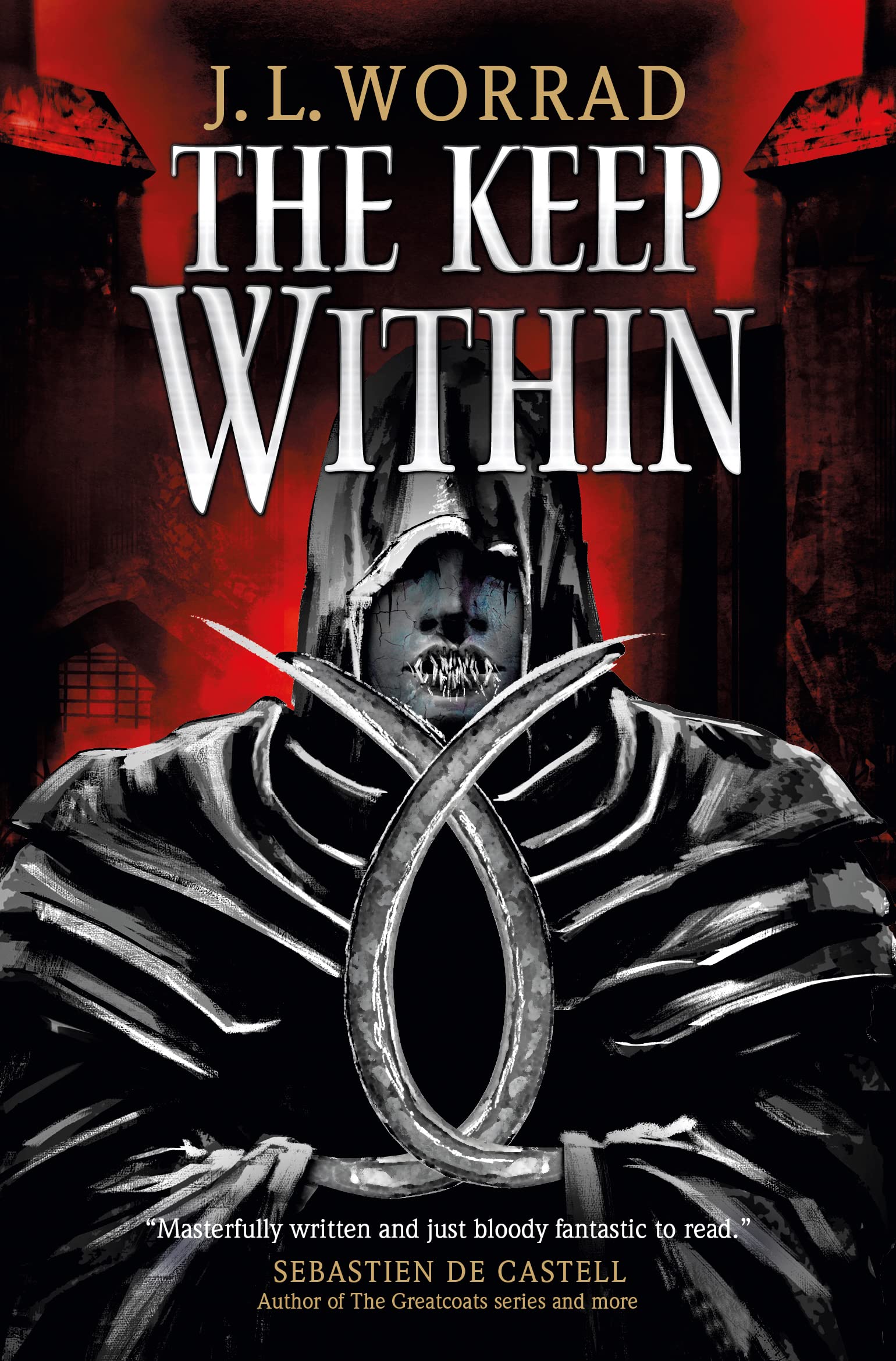
Packed with unforgettable characters, sharp wits, and wild plots, a bastard noble with dreams of the theatre and the ruthless first-queen are both caught up in a tangled web of murder and court intrigue in this savagely funny dark fantasy.
When Sir Harrance ‘Harry’ Larksdale, bastard brother of the king, falls for a mysterious lad from the mountains, he is unwillingly caught up in a chaotic world of court intrigue and murderous folk tales. Meanwhile Queen Carmotta Il’Lunadella, First-Queen of the Brintland, needs to save her life and her unborn child. With the Third-Queen plotting against her, and rumours of coups rocking the court, Carmotta can rely only on her devious mind and venomous wit.
But deep within the walls of Becken Keep squats the keep-within – patient, timeless, and evil. To speak of the keep-within outside the walls of Becken Keep guarantees your bizarre and agonising demise within nine days. All the while, people fearfully whisper the name Red Marie: a bloodied demon with rusted nails for teeth and swinging scythes who preys on the innocent.
Harry and Carmotta are clinging to their dreams, their lives, by threads. And, beneath all, the keep-within awaits.
Artifact Space

I sometimes think every writer of military science fiction is secretly (some not so secretly) trying to write Horatio Hornblower in space. That would be terrific for me as a reader, since I loved the Horatio Hornblower stories of daring, honour, valour, and ingenuity overcoming adversity rather than brute force. Alas, I’ve never really found a science fiction series that gave me those same Hornblower vibes while offering a believable and intriguing context in which those adventures could take place.
Until now.
Artifact Space is what fans of Star Trek the Next Generation who’ve longed for something updated and more reflective of a diverse human society yet still holds to that same core of optimism and idealism about human beings have been waiting for. It’s filled with intriguing space ship troubles, conflicts large and small, the spirit of camaraderie one would hope we’d achieve when going into space, and yet with all the intricacies of our human foibles intact rather than glossed over.
The story centres on Marca Nbaro, a new midshipper on the Greatship Athens – a massive space faring vessel run not by a purely benevolent government but by a consortium of business interests inspired (one suspects) by Venetian mercantile culture. Marca has a troubled past, and the things she’s had to do to get a position on the Athens frequently leave her vulnerable to those out to get her. But she also finds friends aboard the ship, and a growing sense of purpose even as the near-calamitous situations she winds up in reveal her strengths.
Because I’m not a frequent reader of sci-fi (not because I don’t like the genre but because I often don’t quite get it due to my own ineptitude), I often find myself shunted out of a book because the science is either so sparse as to be magic or so lovingly rendered as to be a textbook about things that don’t work in the real world. Kind of like when you read a fantasy novel with four thousand houses, countries, shires, and whatever else and realize you’ve just memorized a history that won’t actually help you at all in your daily life. Artifact Space manages to find a path for the reader in which the science of space travel is balanced against an equally enticing and complex culture and economy. Yes, I meant that: the economics are actually interesting here. More importantly, Cameron never piles on so much at once that you find yourself lost amidst figures and facts about either space travel or the intricate human culture that’s achieved it.
Another aspect of Artifact Space I enjoyed was that – as one would expect on a massive ship hurtling through space – the book is somewhat episodic. It’s not one long, drawn-out singular problem (though there is a mystery that threads the entire narrative), but more the ongoing adventures of Marca NBaro and the crew of the Greatship Athens. If that sounds like a pitch for this to be a television series, it is; I really, really want to see this as a TV show that sits somewhere between Star Trek the Next Generation and The Expanse.
Anyway, enough gushing. Let me grind my axe against the insufferably talented Miles Cameron here a moment by saying I wish he’d added a glossary and dramatis personae to the book. Every acronym, concept, and character is explained, but if you glide over those parts, you’ll find yourself later wondering what the heck that term is they keep using every time they’re referring to the organization they work for or the ones it competes against. However, if you’re reading this review, then I can save you lots of trouble later on by advising that you pay close attention when terms and characters are introduced. Cameron doesn’t drop stuff in for the hell of it – everything will be meaningful at some point in the story.
Artifact Space is the beginning of what I hope will be a huge series, rich in characters and the textures of a space faring society. For those like me who want to read sci-fi but often feel like an outsider looking in when picking up a science fiction novel, Artifact Space is a welcoming delight.
The Devil and the Dark Water
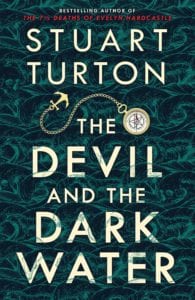
Historical Mystery Full of Twists and Suspence
The Devil and the Dark Water could almost be pitched as “J.J. Abrams’ Lost meets Agatha Christie’s Murder on the Orient Express set on a 17th Century ship”. Maybe the best way to review the book is to explain those elements.
Set on a 17th Century Dutch trading vessel filled with sailors, musketeers, and wealthy travellers, the characters are beset by the possible presence of an actual devil named Old Tom who, if the stories are true, can convince people to commit horrible murders and other crimes. The question of Old Tom’s reality or falsity is batted forth continuously both by events on the troubled ship and by the characters themselves, which is what gives the story that “Lost” quality. And while Stuart Turton gives us a more satisfying conclusion to his tale than J.J. Abrams ever did with his TV series, it’s impossible to make such an ending fully live up to all the suspense.
An equally compelling aspect to the story, however, is the Orient Express comparison: The Devil and the Dark Water features a rich cast of characters who at first appear to be brought together by chance but we soon realize there are hidden reasons for their presence. This adds to the tension because we don’t know who to trust, and when compounded with the powder keg of the sailors and soldiers on board constantly being at each others’ throats, makes for a suspenseful read.
Arent Hayes, the protagonist, is a compelling character – not least because he’s presented as the sidekick of Sammy Pipps, a Sherlock Holmesian figure who is also a captive on the ship and thus Arent is forced to do the detecting for once. Sara, the other main character, is equally engaging as a woman whose own cleverness and compassion have too long been chained by a cruel husband and society, at last unleashed to put her gifts to use.
I won’t say much more here. The Devil and the Dark Water entertainingly blends classic detective fiction, an intriguing historical setting, and the kind of you’re-never-sure-what’s-really-going-on storytelling style that happens to be one of my favourites. Turton’s first book, The Seven and a Half Deaths of Evelyn Hardcastle, was an excellent read, and I’m pretty sure I’ll pick up whatever he writes next. There aren’t a lot of storytellers like Turton out there, and I wish there were more.
THE BLURB:
It’s 1634 and Samuel Pipps, the world’s greatest detective, is being transported to Amsterdam to be executed for a crime he may, or may not, have committed. Travelling with him is his loyal bodyguard, Arent Hayes, who is determined to prove his friend innocent.
But no sooner are they out to sea than devilry begins to blight the voyage. A twice-dead leper stalks the decks. Strange symbols appear on the sails. Livestock is slaughtered.
And then three passengers are marked for death, including Samuel.
Could a demon be responsible for their misfortunes?
With Pipps imprisoned, only Arent can solve a mystery that connects every passenger onboard. A mystery that stretches back into their past and now threatens to sink the ship, killing everybody on board.
Who Is Maud Dixon?

A twisty suspense novel of a would-be writer finding herself taking the identity of her mentor.
The Blurb
Florence Darrow is a small-town striver who believes that she’s destined to become a celebrated writer. When she stumbles into the opportunity to become the assistant to “Maud Dixon,” a celebrated-but anonymous-novelist (think: Elena Ferrante), she believes that the universe is finally providing her big chance. The arrangement feels idyllic; Helen can be prickly, but she is full of pointed wisdom on both writing and living. She even invites Florence along on a research trip to Morocco, where her new novel is set. Florence has never been out of the country before; maybe, she imagines, she’ll finally have something exciting to write about herself.
But when Florence wakes up in the hospital after a terrible car crash, and Helen is dead, she begins to imagine what it might be like to ‘upgrade’ into not only Helen’s life, but also that of Helen’s bestselling pseudonym, Maud Dixon..
The Rose Code

The New York Times and USA Today bestselling author of The Huntress and The Alice Network returns with another heart-stopping World War II story of three female code breakers at Bletchley Park and the spy they must root out after the war is over.
It’s an odd thing to realize that the author whose work you enjoy the most writes in a genre that you almost never read. I’m not a historical fiction buff, nor am I particularly drawn to stories about World War II. Nonetheless, all three of Kate Quinn’s recent books: The Alice Network (technically a WWI spy thriller), The Huntress, and The Rose Code have captivated me entirely.
I adore Quinn’s writing; it’s vivid, flows incredibly smoothly, draws you into each scene and character. Speaking of characters, she does this wonderful thing with them where they’re actually broadly drawn rather than excessively nuanced, and somehow that works wonderfully for me as a reader. It’s a bit like the difference between modern films and ones from the Golden Age of cinema – it’s not that one’s better than the other (and arguably, modern films probably are better overall), but that sometimes its so purely enjoyable to see those big, clearly defined characters on the screen or page for a time.
I’ve noticed that with all three of the books I’ve read by Kate Quinn that they start fast, have what feel like extended middles with lots of narrative development but not especially fast pacing, and then bring you into these fabulous roller coaster rides in the last act. That sometimes means you worry during the middle of the book that it might not all come to some big, boisterous ending, but in the books of hers I’ve read, the endings have always been worth the wait.
I won’t gush further because, well, I’m still not sure why I like these books so much given my normal genres are fantasy, mystery, and the occasional venture into an Ian McEwan book, but I come away from every Kate Quinn novel wishing she also wrote fantasy, or mystery, or, hell, wrote some Ian McEwan books too.
If you’ve never read anything by Kate Quinn, I recommend starting with The Alice Network. I think I’ve bought that book for more people than any other I can remember, which is surely a good sign.
The Blurb
1940. As England prepares to fight the Nazis, three very different women answer the call to mysterious country estate Bletchley Park, where the best minds in Britain train to break German military codes. Vivacious debutante Osla is the girl who has everything—beauty, wealth, and the dashing Prince Philip of Greece sending her roses—but she burns to prove herself as more than a society girl, and puts her fluent German to use as a translator of decoded enemy secrets. Imperious self-made Mab, product of east-end London poverty, works the legendary codebreaking machines as she conceals old wounds and looks for a socially advantageous husband. Both Osla and Mab are quick to see the potential in local village spinster Beth, whose shyness conceals a brilliant facility with puzzles, and soon Beth spreads her wings as one of the Park’s few female cryptanalysts. But war, loss, and the impossible pressure of secrecy will tear the three apart. 1947. As the royal wedding of Princess Elizabeth and Prince Philip whips post-war Britain into a fever, three friends-turned-enemies are reunited by a mysterious encrypted letter–the key to which lies buried in the long-ago betrayal that destroyed their friendship and left one of them confined to an asylum. A mysterious traitor has emerged from the shadows of their Bletchley Park past, and now Osla, Mab, and Beth must resurrect their old alliance and crack one last code together. But each petal they remove from the rose code brings danger–and their true enemy–closer…


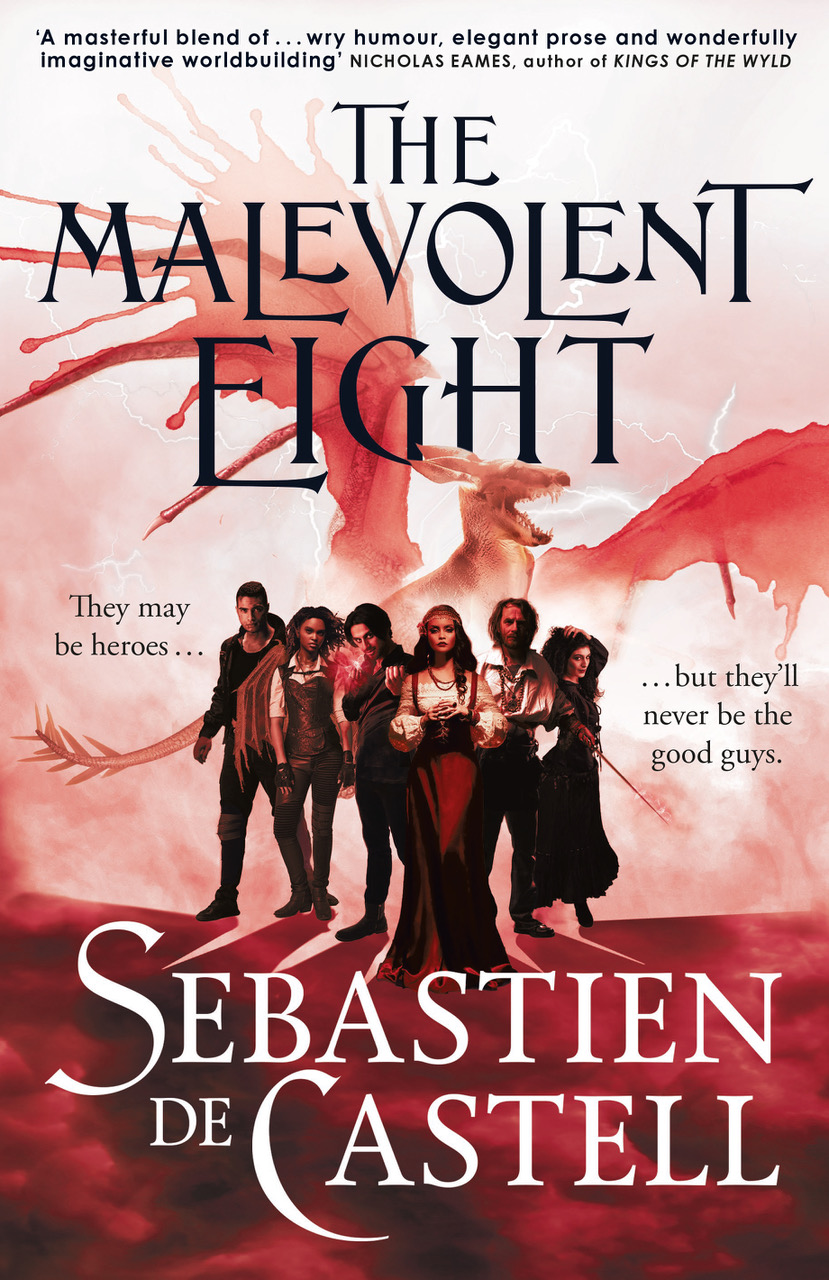
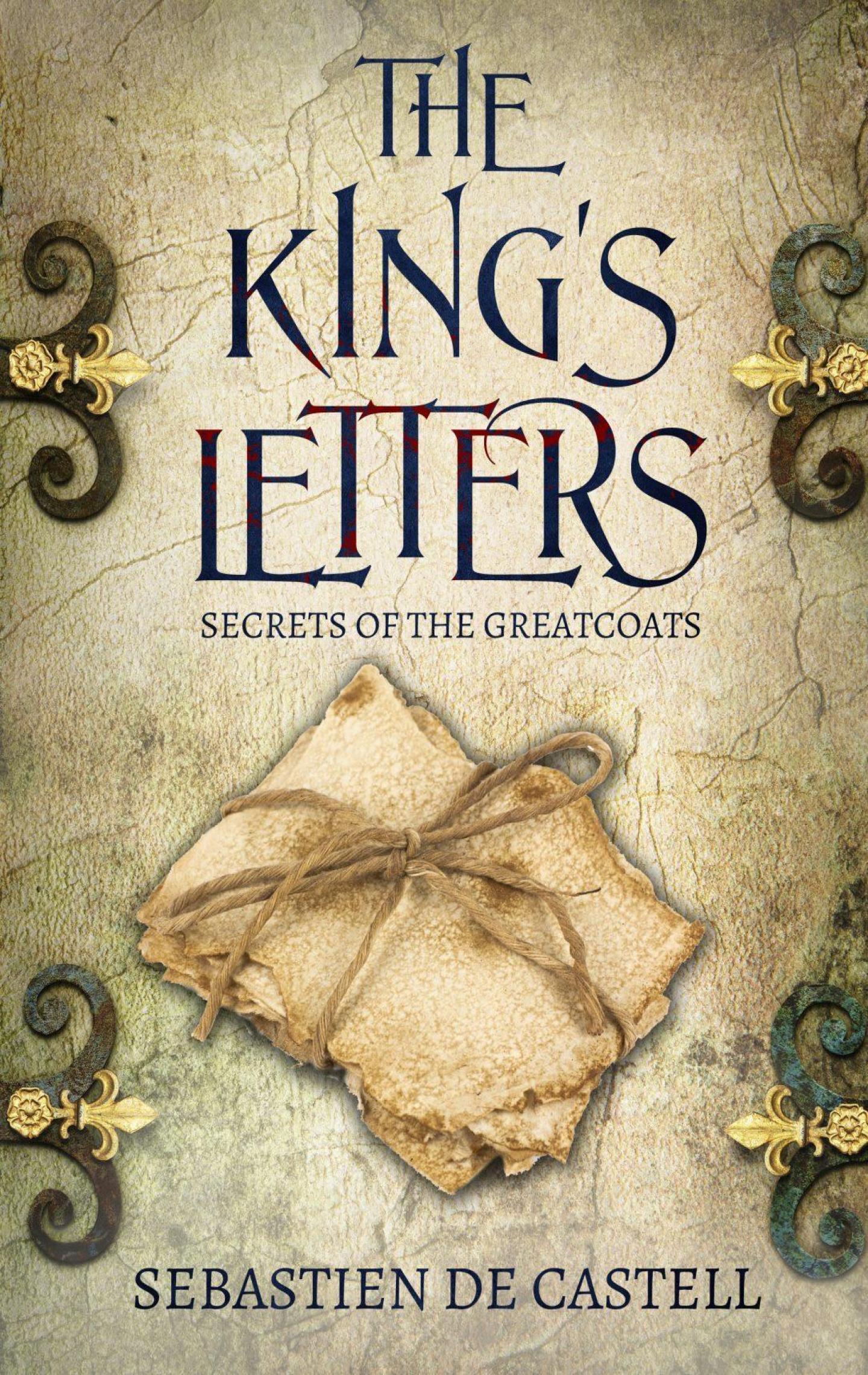
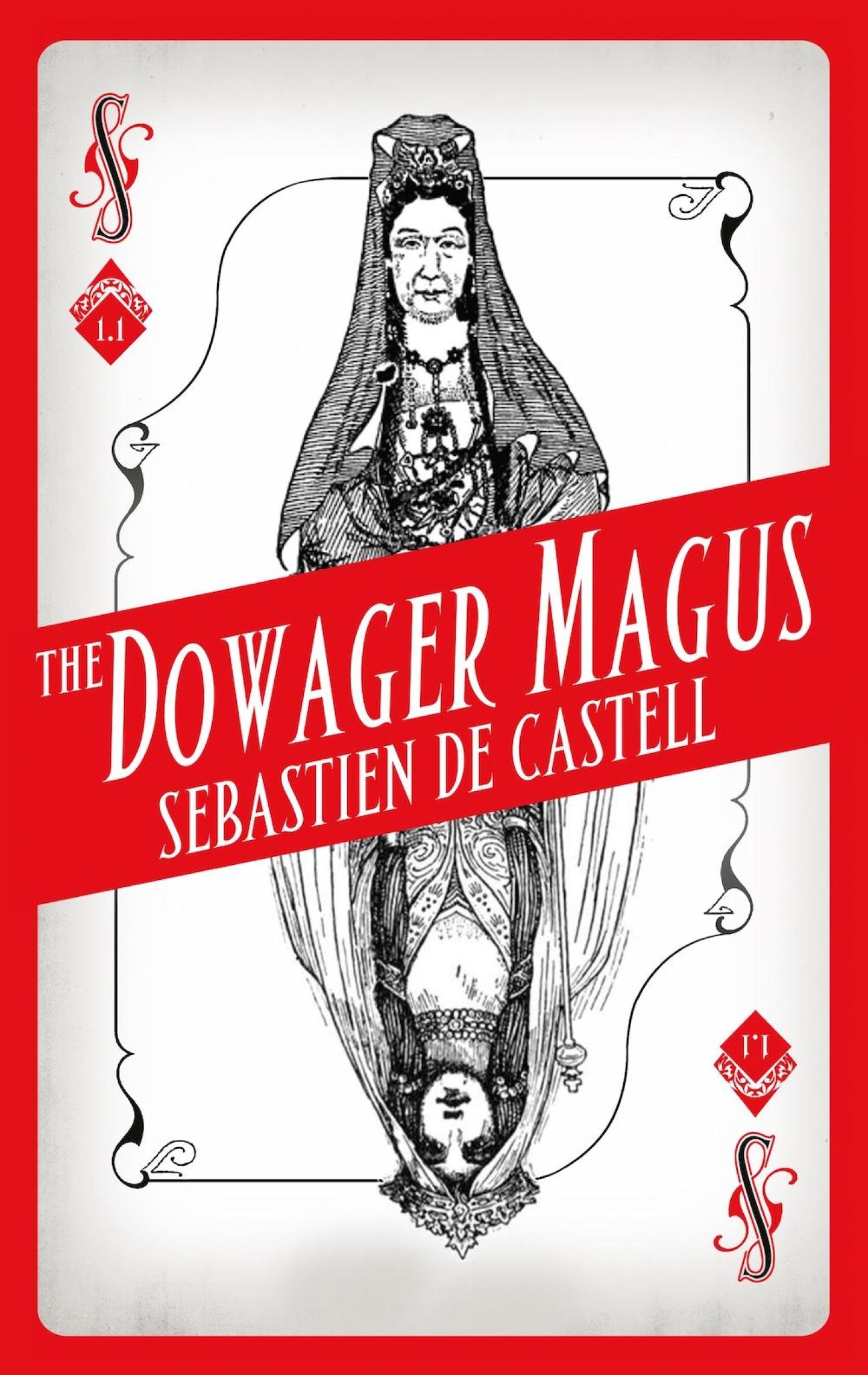
 Les vieux maîtres de sort aiment raconter que la magie a un goût. Les sorts de braise ressemblent à une épice qui vous brûle le bout de la langue. La magie du souf e est subtile, presque rafraîchissante, un peu comme si vous teniez une feuille de menthe entre vos lèvres. Le sable, la soie, le sang, le fer… cha- cune de ces magies a son parfum. Un véritable adepte, autre- ment dit un mage capable de jeter un sort même à l’extérieur d’une oasis, les connaît tous.
Les vieux maîtres de sort aiment raconter que la magie a un goût. Les sorts de braise ressemblent à une épice qui vous brûle le bout de la langue. La magie du souf e est subtile, presque rafraîchissante, un peu comme si vous teniez une feuille de menthe entre vos lèvres. Le sable, la soie, le sang, le fer… cha- cune de ces magies a son parfum. Un véritable adepte, autre- ment dit un mage capable de jeter un sort même à l’extérieur d’une oasis, les connaît tous. 'I totally saw this coming,’ Reichis growled, leaping onto my shoulder as lightning scorched the sand barely ten feet from us. The squirrel cat’s claws pierced my sweat-soaked shirt and dug into my skin.
'I totally saw this coming,’ Reichis growled, leaping onto my shoulder as lightning scorched the sand barely ten feet from us. The squirrel cat’s claws pierced my sweat-soaked shirt and dug into my skin. The way of the Argosi is the way of water. Water never seeks to block another’s path, nor does it permit impediments to its own. It moves freely, slipping past those who would capture it, taking nothing that belongs to others. To forget this is to stray from the path, for despite the rumours one sometimes hears, an Argosi never, ever steals.
The way of the Argosi is the way of water. Water never seeks to block another’s path, nor does it permit impediments to its own. It moves freely, slipping past those who would capture it, taking nothing that belongs to others. To forget this is to stray from the path, for despite the rumours one sometimes hears, an Argosi never, ever steals.